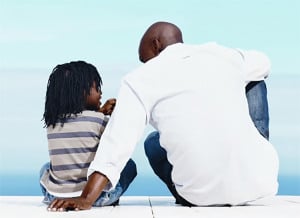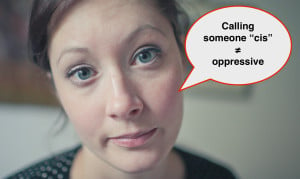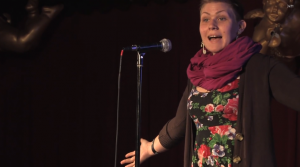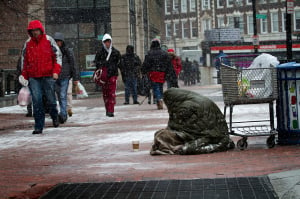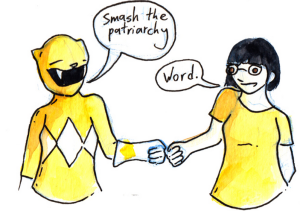
Source: About Health
When we discuss reproductive justice, we talk a lot about recognizing and embracing the full spectrum of pregnancy and birthing options. That usually means abortion, parenting, and adoption — but it should also include miscarriage.
Miscarriages are far more common than we tend to think, and that’s largely because most people don’t feel comfortable talking about the loss of their pregnancy through this means.
But that doesn’t mean it doesn’t happen.
According to the American College of Obstetricians and Gynecologists, about 15% of all recognized pregnancies end in miscarriage.
So as reproductive justice allies, it’s essential that we embrace miscarriage as part of our work in addressing pregnancy options and outcomes.
We often forget about this particular pregnancy outcome, and while that might be due in-part to the grief many who experience it feel for the loss of their pregnancy, another component is without a doubt the shame and stigma that comes along with admitting that you’ve experienced it, too.
And there is increasingly more reason to discuss it.
Across the country, we’re seeing the criminalization of pregnancy and miscarriages, with those who lose their pregnancies being thrown in jail for allegedly contributing to their loss as an unintended consequence of the anti-choice push to restrict abortion access by any means necessary.
For example, anti-choice personhood measures — which grant person status to a fetus as early as conception — put those who experience a miscarriage at risk of prosecution.
If these laws have shown us anything, it is that miscarriage is a part of reproductive rights and justice — and something that we can no longer afford to ignore.
But to do that, we first need to have a talk about addressing the shame and silence that veils miscarriage and how we can combat it. Here are four ways to do so.
1. Talk About It
In cases of miscarriage, self-blame is a frequent factor in the aftermath.
While not everyone who experiences pregnancy and/or miscarriage identifies as a woman, many do. And in a society that attaches the worth of women to their ability, desire, and willingness to carry a pregnancy to term and raise children, it’s no wonder they blame themselves.
They perceive themselves as failed mothers, and therefore as failed women.
Women are defined by their ability to have a child, and when it doesn’t quite work out that way, whether it is by choice or miscarriage, our culture attaches a stigma and blame to them.
But it’s important to realize that women are not at fault for the loss of their pregnancies through miscarriage. And the way to stop the shame and stigma that surrounds it is by addressing it.
Bringing the issue before our communities can help to ignite a healing process worthy of addressing the guilt and self-blame that those who experience miscarriage feel.
Giving miscarriage visibility by having more open and honest discussions about it also helps to remove the stigma that surrounds it. It allows each of us to put a face and a story on a concept we tend to think about in the abstract.
Miscarriage is a real thing that happens to real people, and recognizing it as such can go a long way in making this change.
2. But Don’t Pressure Others to Talk About It
Many who lose their pregnancies feel a profound sense of grief that is hard to shake and even harder to talk about.
One thing we absolutely should not do is push people to disclose a miscarriage if they don’t wish to or aren’t ready to discuss it. Much like abortion, these are deeply personal experiences that vary drastically from person to person.
Although it’s important to provide space to have these conversations that include those who have actually experienced them, pushing people to disclose their own experiences won’t do anybody any good.
Instead, we need to create safe spaces to have these conversations and opportunities to have them. People will talk about it when they are ready to.
3. Get Over the Language Hurdle
One reason we, as activists, often fail to discuss miscarriage is because we find ourselves caught up in the semantics of choice politics.
Anti-choice narratives rely on equating pregnancy with a baby and abortion as the taking of that life. Therefore, much of our rhetoric around choice and reproductive rights depends on differentiating a fetus from a fully delivered baby in order to combat this.
But this doesn’t leave a lot of space for reproductive rights activists to discuss the loss of a wanted pregnancy.
And not having these conversations alienates those who do experience miscarriage. We silence those whose pregnancies were very much wanted and the loss of which is marked as the loss of a life.
So what words can we use? How do we talk about the loss of a wanted pregnancy when these discussions decenter the narratives we rely on in our own work?
If we are really about choice, why not leave it up to those who are experiencing a pregnancy — or who lose one — to define what their pregnancies are for themselves?
Perhaps somebody experiences a miscarriage and they view it as the loss of a child. There is nothing wrong with that, and we should not and cannot ask them to minimize that loss by referring to what they lost as a fetus to fit our political agenda.
On the flip side, sometimes people abort a pregnancy that they did not want and they don’t view it in this way.
Both situations are valid — but we should be leaving those determinations up to those who experience them, not pushing them to define it in the way we want to support our goals in the movement.
4. Recognize That Miscarriages and Abortions Coexist
Another seemingly tied issue is that many who experience miscarriage do not fully lose the pregnancy as a result, and end up having to seek additional care and abortion procedures.
As Miriam Perez discusses in her blog Radical Doula, many of the people she encounters in her work as an abortion doula are actually at clinics to end wanted pregnancies that they are in the process of losing due to miscarriage.
We tend not to talk about or even think about these sorts of scenarios when we discuss what a world without abortion would look like, but Perez asks just this question.
Abortion care is a part of reproductive rights and freedom that cannot be unlinked. Each are inextricably connected, and we can’t address reproductive rights and justice fully without considering the role that miscarriages play in it.
***
Some within the movement have already begun to make this shift.
Full-spectrum doulas, for example, are increasingly embracing miscarriage as an inextricable component of pregnancy care in hopes of supporting those who experience it.
For those of us who aren’t involved in birth work, doing our part can be as simple as talking about it. In the process of doing so, we can remove some of the shame and stigma that prevents people from speaking out.
And when some start to speak, more will follow until we have erased the silence that inexcusably follows a common experience.
[do_widget id=”text-101″]
Ally Boghun is a Contributing Writer at Everyday Feminism. She is a feminist activist and media researcher living and working in Washington, DC. Ally completed both her B.A. in Communications and Art History as well as her M.S. in Professional Communications at Clark University, where she researched abortion debate rhetoric. She is also the founder and editor of Because I am a Woman, a blog devoted to intersectional feminism and reproductive justice. In her spare time, you can find her at an art museum, consuming massive amounts of coffee while writing, or trying to convince her cat to go for walk. You can follow Ally on Twitter @AllyBoguhn.
Search our 3000+ articles!
Read our articles about:
Our online racial justice training
Used by hundreds of universities, non-profits, and businesses.
Click to learn more








